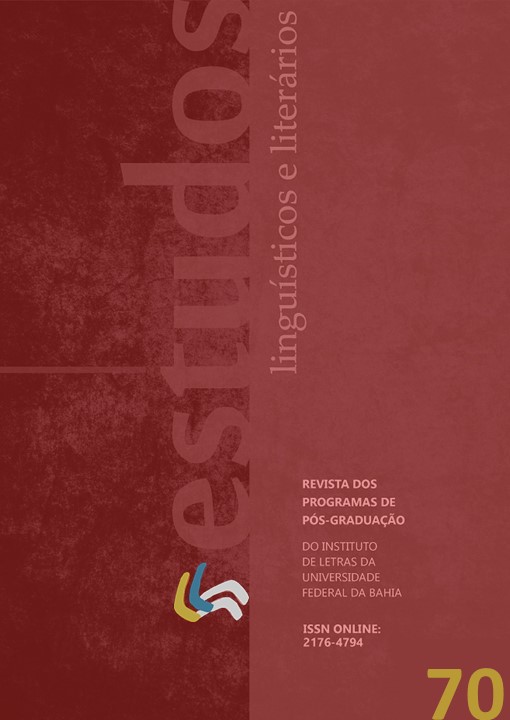MEMORY(S) IN LA DISTANCIA QUE NOS SEPARA
DOI:
https://doi.org/10.9771/ell.i70.44128Keywords:
Memories, Contemporary Peruvian narrative, Father figure, IdentityAbstract
This article presents a reading of the construction of memory (or memories) in the novel La Distancia que nos Separa (2015), by Renato Cisneros. The Peruvian journalist and author bases the narrative on tenuous and porous links between biography, fiction and history, all open to the multiple signs of understanding. In this analytical proposal, we read the work as self-fiction, where the narrator unearths the father figure of Luís Federico Cisneros Vizquerra – better known as El Gaucho Cisneros, general of the División del Ejército Militar del Perú –, to challenge an obsession: the search for identity. Returning to the past presents itself as a way of reading the present and oneself. Supported by AÍNSA (2012), RICOUER (2010), SARLO (2007), we interpret that the understanding of 'memory', in the aforementioned work, is engendered on an idea of permanent construction, challenging any finished version of these experiences, identities and narrated writing.
Downloads
References
AÍNSA, Fernando. Palabras Nómadas. Nueva Cartografía de la pertinencia. Madrid: Iberoamericana/Vervuet, 2012. [E-Book]
ATANASIO, Angelo. Renato Cisneros: "Me interesaba despertar en aquellos que tienen tantas certezas sobre su relato familiar algunas dudas incómodas". BBC/New/Mundo. Entrevista. 24 de janeiro de 2018. Disponível em: [https://www.bbc.com/mundo/noticias-42750503]. Acesso em: 30/03/2021.
CISNEROS, Renato. La distancia que nos separa. Perú: Planeta, 2015. [E-Book]
DE VIVANCO, Lucero. “Pares díspares”: dinámicas de simbolización de la violencia política en la literatura peruana (de 1980 al presente). Memorias en tinta. Ensayos sobre la representación de la violencia política en Argentina, Chile y Perú. Chile: Ediciones Universidad Alberto Hurtado, 2013, p.5718-6168. [E-Book]
MAIOLI, Juliana Bevilacqua. Identidades transnacionais na narrativa hispano-americana contemporânea: uma leitura de Árbol de familia, de María Rosa Lojo, e Una vez Argentina, de Andrés Neuman. Polifonia, Cuiabá-MT, vol.27, n.47, p. 55 a 76, jul.-set., 2020.
RICOUER, Paul. A memória, a história, o esquecimento. Tradução de Alain François (et al). Campinas, São Paulo: Editora da Unicamp, 2007.
RICOUER, Paul. Tempo e narrativa. A intriga e a narrativa histórica. Tradução de Cláudia Beliner. São Paulo: Editora Martins Fonte, 2010.
SARLO, Beatriz. Tiempo pasado. Cultura de la memoria y giro subjetivo. Una discusión. Buenos Aires: Siglo XXI Editora Argentina, 2007.
VARIKAS, Eleni. A escória do mundo: figuras do pária. Tradução de Nair Fonseca e João Alexandre Peschanski. São Paulo: Editora Unesp, 2014.
VELÁZQUEZ, Noberto Barreto. La Operación Cóndor: un enfoque comparativo. Historica, s.d., XXXVII, vol.2, p. 171 a 178, 2013.


